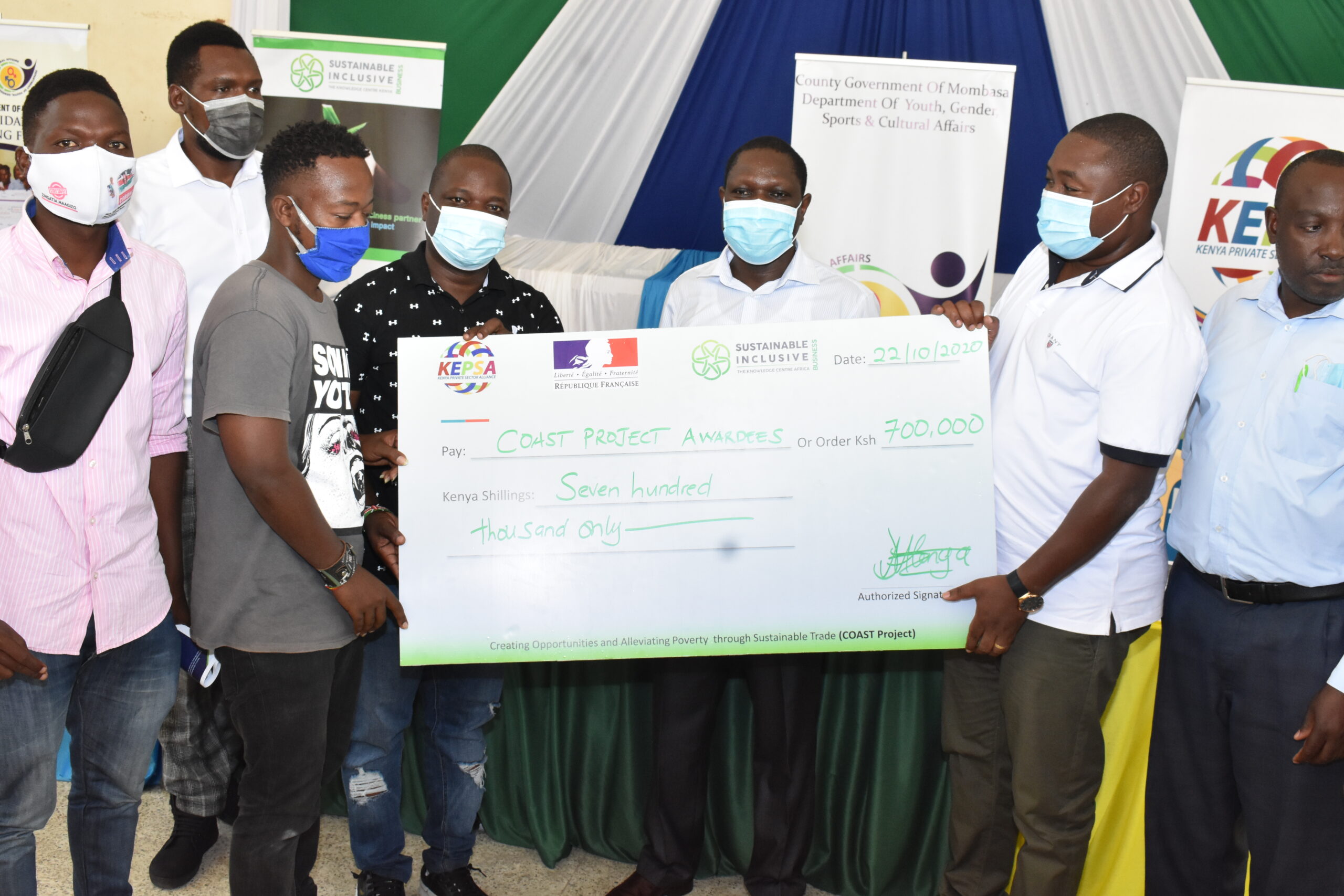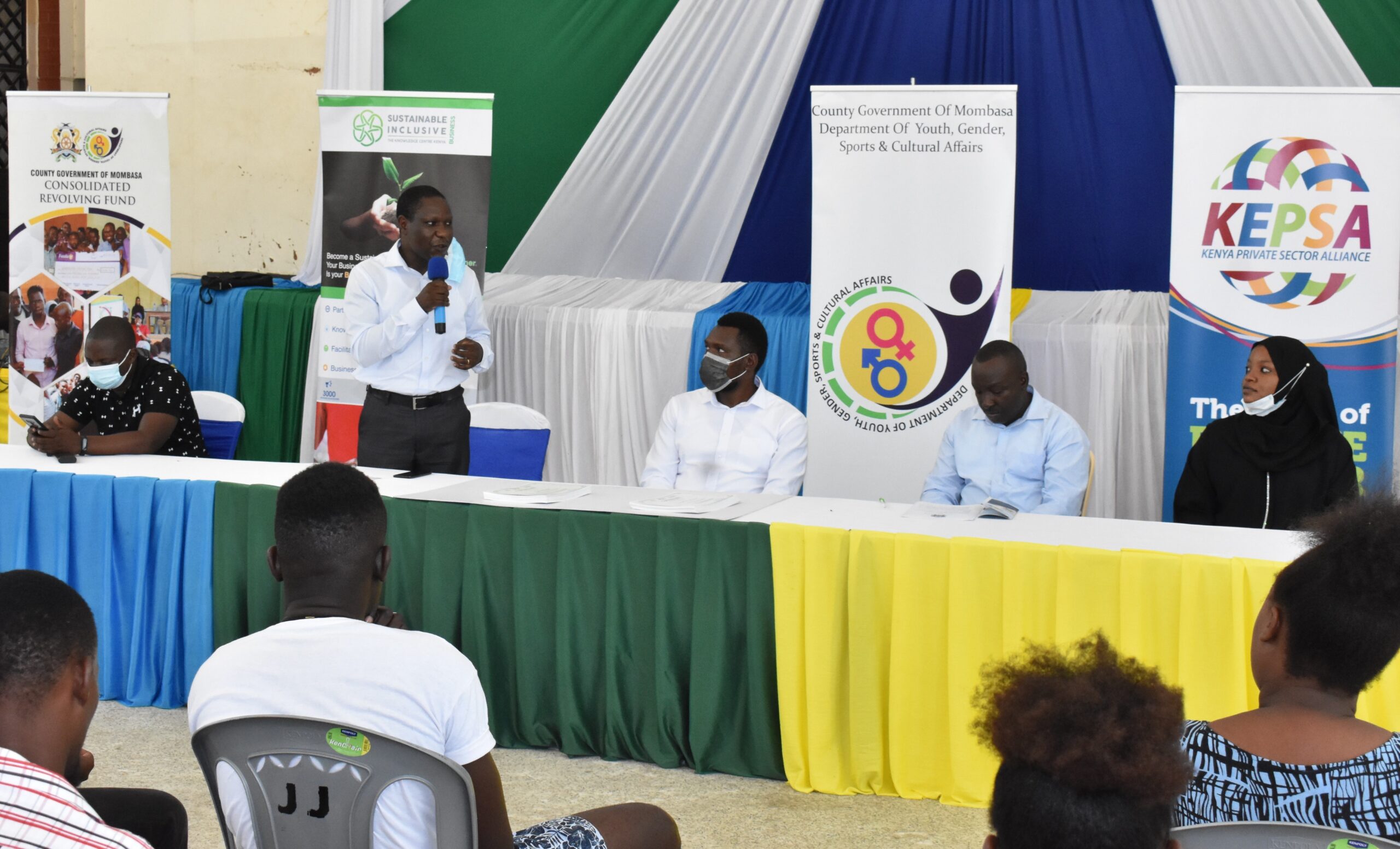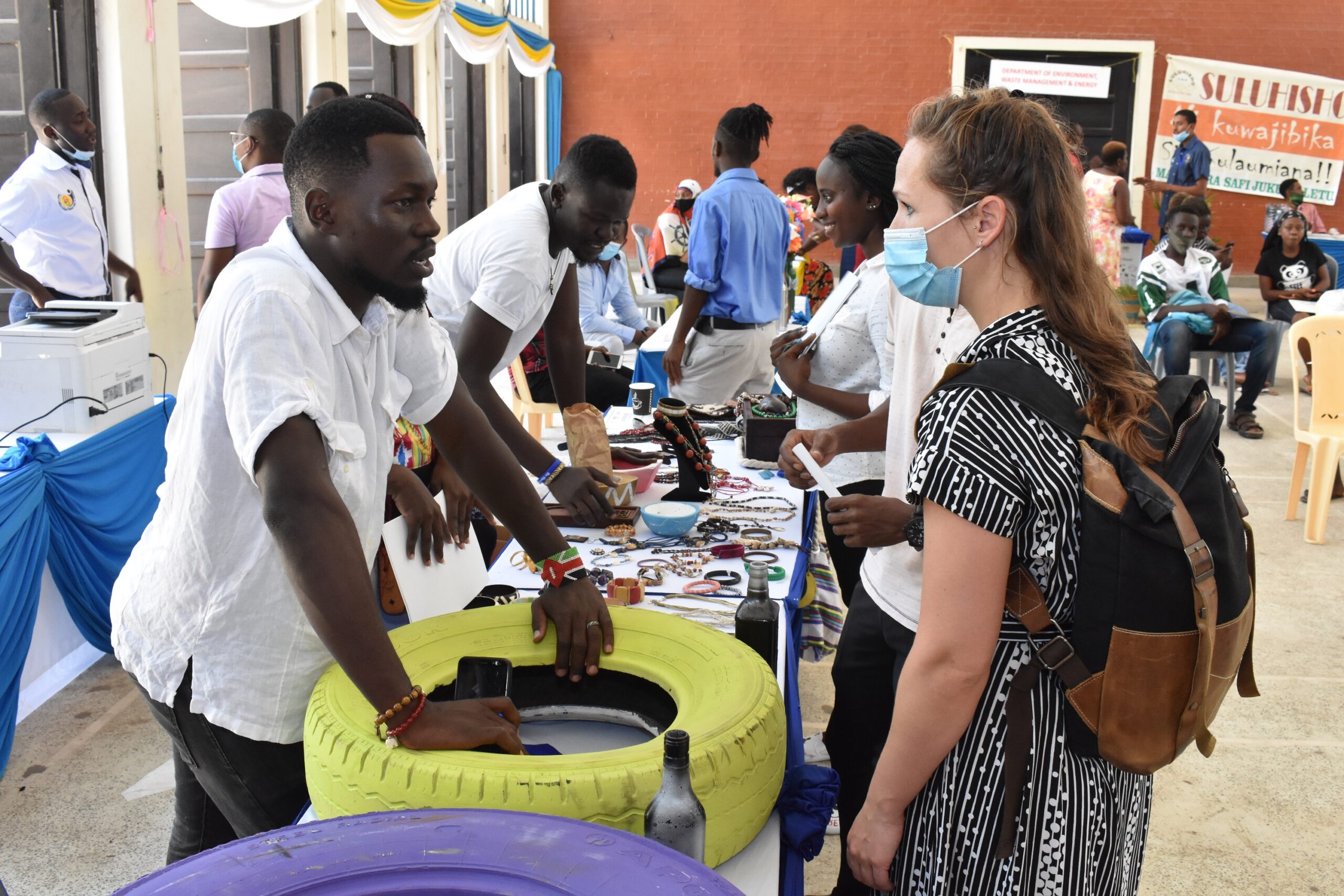22nd October, 2020, Mombasa: The Kenya Private Sector Alliance (KEPSA) Foundation through Sustainable Inclusive Business (SIB-K); has successfully trained over 100 youth in Tudor informal settlement, Mombasa County on the waste to value concept. The training was part of the COAST Project (Creating Opportunities and Alleviating Poverty Through Sustainable Trade) launched in July; which aims to create awareness on waste management and increase the participants’ capacity to develop business cases through mentorship.
The program has further empowered trainees to harness their entrepreneurship skills; enhance access to financing and begin micro and small businesses based on sustainable waste management models. Out of it, 19 businesses related to waste management have been created, from which 13 have been awarded seed funding from the project. These businesses target to collect, sort, recycle, re-purpose and refurbish different forms of waste to create a sustainable income.
 “At the end of the two-weeks’ training, the participants presented us with business plans on various models related to waste; which were thoroughly vetted by experts from both KEPSA and the County. We congratulate the winners of the seed fund competition, whose ideas are based on environmental impact, and look forward to seeing them take root,” said Sustainable Inclusive Business Program Manager Ebenezer Amadi. “We believe that by educating the youth of alternative sources of income from waste especially during a pandemic that has claimed millions of jobs, we will increase employment opportunities by approximately 3% and enhance skills in business management and financial literacy by 5%,” he added.
“At the end of the two-weeks’ training, the participants presented us with business plans on various models related to waste; which were thoroughly vetted by experts from both KEPSA and the County. We congratulate the winners of the seed fund competition, whose ideas are based on environmental impact, and look forward to seeing them take root,” said Sustainable Inclusive Business Program Manager Ebenezer Amadi. “We believe that by educating the youth of alternative sources of income from waste especially during a pandemic that has claimed millions of jobs, we will increase employment opportunities by approximately 3% and enhance skills in business management and financial literacy by 5%,” he added.
He was speaking at the Coast Fair for Sustainable Waste Management, an exhibition bringing together waste collectors, recyclers, manufacturers and youth and women groups engaging in businesses related to waste. The event, was organized by Sustainable Inclusive Business – KEPSA, in collaboration with the Mombasa County Government’s Department of Youth, Gender, Sports and Cultural Affairs and the Department of Environment, Waste Management and Energy organized.
Mombasa County CEC Environment Dr. Godfrey Nyongesa Nato who officially opened the fair at the Tononoka Social Hall in Mombasa, applauded the role of KEPSA and partners in empowering the youth while contributing to the betterment of the environment. He said that “When I look at the products exhibited here today, I do not see waste but the byproducts of waste. This is testament that the value in sustainable waste management requires to be constantly tapped to create income. The county government is privatizing the waste collection sector and increasingly welcomes such initiatives that target to improve the livelihoods of our people, especially the low-income earners.”
 By embracing public private partnerships that adopt the circular economy model, both KEPSA and the Mombasa County Government aim to address sustainable development challenges and contribute to Kenya’s vision 2030 on developing targeted pro-poor projects; as well as the achievement of Sustainable Development Goal 1 on alleviating poverty.
By embracing public private partnerships that adopt the circular economy model, both KEPSA and the Mombasa County Government aim to address sustainable development challenges and contribute to Kenya’s vision 2030 on developing targeted pro-poor projects; as well as the achievement of Sustainable Development Goal 1 on alleviating poverty.
“We are proud to support initiatives that present solutions in waste management and the use waste as an input for production. This project is geared towards solving the high rate of unemployment in Mombasa. My department through Revolving Fund, was highly involved in the selection of the successful business ideas and we are committed to enhance these startups’ access to financing by linking them to financial institutions,” noted Munira Hamisi Director, Youth Economic Empowerment at the Department of Youth, Gender, Sports and Cultural Affairs, Mombasa County.
 Solid waste management in Mombasa is still a major challenge and a health risk to residents living close to dumping sites; with about 900 tons of waste generated each day. Out of these, 13%-18% are plastics. While the sector is still informal, inadequate sensitization has further left the public oblivious of the goldmine that is waste.
Solid waste management in Mombasa is still a major challenge and a health risk to residents living close to dumping sites; with about 900 tons of waste generated each day. Out of these, 13%-18% are plastics. While the sector is still informal, inadequate sensitization has further left the public oblivious of the goldmine that is waste.
“Am glad I joined the KEPSA training on creating sustainable businesses from waste. With a group of 4 other members, we formed a group and through mentorship created a business plan on upcycling waste bottles to decorations which we presented before the jury. While the competition was tough with participants presenting incredible ideas, we are ecstatic to be among those selected for seed funding. Our aim as a group is to create a sustainable income for our members while at the same time keeping the environment clean,” said an elated Mary Sidi, COAST Project trainee.
The innovative and comprehensive project is supported by the French Government under the PISCCA fund.


